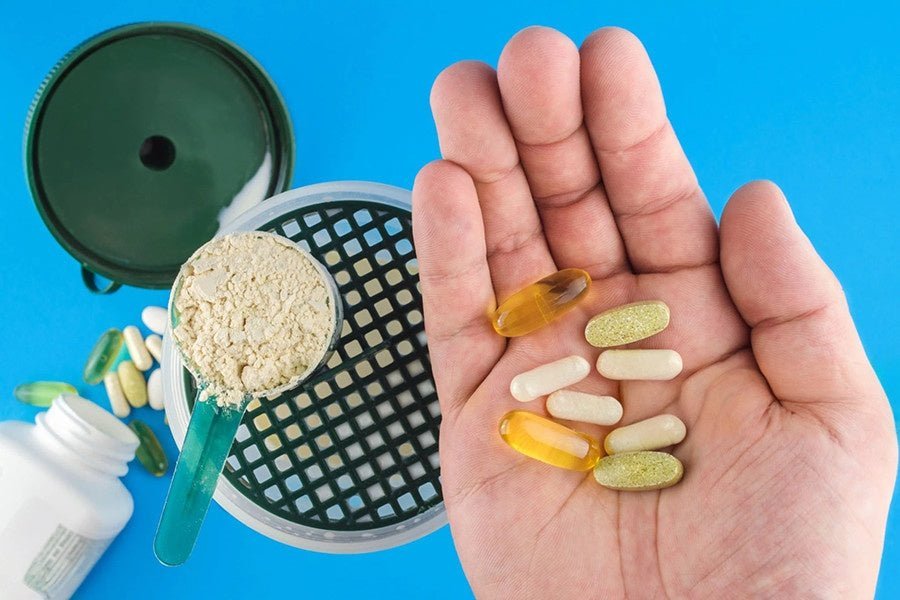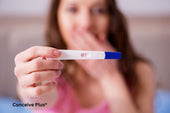What to Know When Trying to Get Pregnant: A Clear Roadmap to Conception

What to know when trying to get pregnant often goes beyond simply knowing when to have intercourse. It involves understanding your body, optimizing your health, managing stress, and timing things just right. While getting pregnant can be quick and easy for some, for others, it takes patience, strategy, and the right information. Whether you’re actively planning to get pregnant or just starting to think about it, being well-informed can make the process smoother and less stressful. Let’s explore the most essential things to consider on your path to parenthood—covering everything from preconception health to lifestyle changes and timing [1].
Assessing Your Health Before Trying
Before you start trying, it’s essential to schedule a preconception check-up. This visit allows your healthcare provider to review your medical history, screen for any existing conditions, and ensure that you’re in optimal health. It’s also an opportunity to discuss your cycle and ask any questions like “how do you plan a pregnancy around irregular periods?” or “what to take while trying to get pregnant to improve egg quality?”
Certain conditions, like thyroid disorders or untreated infections, can interfere with conception or pregnancy, so addressing them early improves your chances of a healthy outcome. If you're already preparing to get pregnant, ask your doctor about vaccinations, genetic testing, and lifestyle modifications that can support your fertility and overall well-being [2].
If you're grappling with the challenges of conceiving on an irregular cycle and wondering how do I get pregnant with an irregular period, be sure to explore our comprehensive guide "How Do I Get Pregnant With an Irregular Period and Overcome Irregular Ovulation" for actionable insights.
Tracking Ovulation and Understanding Your Cycle
Understanding your menstrual cycle is one of the most critical steps when you're planning to get pregnant. Ovulation—the release of an egg from the ovary—typically occurs in the middle of your cycle, and that’s the window when you’re most fertile. Learning how to track ovulation using temperature changes, cervical mucus, or ovulation predictor kits can dramatically increase your chances of conceiving.
If you’re wondering when to get baby timing right, it’s best to have intercourse during the five days leading up to ovulation and the day of ovulation itself. This fertile window gives sperm the best opportunity to meet the egg.
Women with regular cycles have an easier time identifying this window, but even if your cycles are irregular, you can still track ovulation using digital tools or apps. Knowing when your body is most fertile can reduce stress and confusion, making the process more predictable and effective [3].
If you're curious about the mechanics behind how a woman gets pregnant by a man, be sure to check out our article "How a Woman Gets Pregnant by a Man and Why Do Women Get Pregnant Naturally" for a deeper dive into the natural processes of conception.
Nutrition and Supplements Matter
Thinking about getting pregnant often leads people to reflect on their diet—and with good reason. Nutrient-rich food supports both fertility and a healthy pregnancy. Focus on a well-balanced diet that includes lean protein, fruits, vegetables, whole grains, and healthy fats. Iron, calcium, and vitamin D are especially important at this stage.
Folic acid is perhaps the most well-known preconception supplement. It helps prevent neural tube defects and should ideally be taken at least one month before conception. Prenatal vitamins are another great way to fill in nutritional gaps, especially if you’re unsure whether your diet covers everything you need.
If you’re asking yourself what to take while trying to get pregnant, folic acid and prenatal vitamins should top the list, but your doctor may recommend others depending on your health history and dietary needs [4].
Lifestyle Habits to Watch
When it comes to what not to do when trying to get pregnant, there are several key behaviors to avoid. Smoking, excessive alcohol, and recreational drug use can all negatively affect fertility and may pose risks to the developing baby. If you drink alcohol socially, it’s advisable to cut back or stop altogether once you start trying to conceive.
Caffeine is another substance to moderate. While small amounts are generally considered safe, high consumption can potentially interfere with conception. Aim to keep caffeine intake below 200 mg per day, which is about one 12-ounce cup of coffee.
Maintaining a healthy weight is also crucial. Being significantly underweight or overweight can disrupt ovulation and make it more difficult to get pregnant. Incorporating regular physical activity into your routine supports a balanced weight and overall reproductive health [5].
Managing Stress and Emotional Readiness
Stress is one of the more subtle factors that can affect your ability to conceive. Although stress alone doesn’t cause infertility, high levels can impact ovulation and reduce the frequency of intercourse. If you're constantly feeling overwhelmed or anxious about the process, it might affect both your physical and emotional readiness.
This is why emotional preparation is just as important as physical. To be pregnant what to do mentally involves having open conversations with your partner, building a support system, and giving yourself permission to feel however you feel. Some couples benefit from counseling or mindfulness practices like yoga and meditation.
Creating a stress-reducing routine not only improves your fertility chances but also prepares you for the emotional journey of parenthood [6].
Timing Intercourse the Smart Way
Once you’re ready physically and emotionally, timing intercourse becomes the focal point of your efforts. The key to getting pregnant is ensuring that sperm is present when the egg is released. Sperm can survive in the female reproductive tract for up to five days, so having sex every other day during your fertile window is an effective strategy.
If you’ve been planning to get pregnant for several months with no success, tracking your ovulation more precisely or adjusting your timing could make a difference. Digital ovulation kits, fertility apps, and even fertility monitors can help pinpoint the best time for conception [7].
Know When to Seek Help
Trying to conceive is not always a quick process. For healthy couples under 35, it's considered normal to take up to a year to get pregnant. However, if you’ve been trying for 12 months (or 6 months if you’re over 35) without success, it’s wise to consult a fertility specialist.
Other signs that might warrant a medical consultation include irregular periods, a history of miscarriages, or a known reproductive issue in either partner. There’s no harm in seeking advice early, especially if you feel something might be off. Fertility clinics offer evaluations and treatments that can uncover potential issues and support your journey toward parenthood.
Preparing Your Partner
Often, the focus tends to fall solely on the person carrying the pregnancy, but your partner’s health is equally important. Sperm quality can be affected by age, diet, lifestyle, and environmental exposures. Encourage your partner to adopt healthier habits too—cutting back on alcohol, avoiding tobacco, and managing stress can significantly improve fertility outcomes.
Simple changes like wearing looser clothing, avoiding hot tubs, and maintaining a healthy weight can also help. Having these conversations early ensures you’re both aligned in your goals and ready to support each other every step of the way.
The Bottom Line
Understanding what to know when trying to get pregnant can help you feel more in control during a time that’s often filled with both excitement and uncertainty. From preparing your body and adjusting your lifestyle to tracking ovulation and managing stress, every small step contributes to your overall chances of success. Whether you’re preparing to get pregnant now or just thinking about getting pregnant in the near future, taking action today can shape your journey tomorrow.
Stay informed, stay positive, and remember: every path to parenthood is unique. By learning what to do—and what not to do—you’re already laying the foundation for a healthy future and taking powerful steps to get baby ready.
References
- Zaçe D, Orfino A, Mariaviteritti A, Versace V, Ricciardi W, DI Pietro ML. A comprehensive assessment of preconception health needs and interventions regarding women of childbearing age: a systematic review. J Prev Med Hyg. 2022 Apr 26;63(1):E174-E199. doi: 10.15167/2421-4248/jpmh2022.63.1.2391. PMID: 35647378; PMCID: PMC9121675.
- Fujishima A, Maeda E, Sato K, Saito H, Ozeki C, Terada Y. Feasibility and effectiveness of preconception check-ups at workplaces in Japan. J Occup Health. 2024 Jan 4;66(1):uiae021. doi: 10.1093/joccuh/uiae021. PMID: 38684110; PMCID: PMC11255479.
- Su HW, Yi YC, Wei TY, Chang TC, Cheng CM. Detection of ovulation, a review of currently available methods. Bioeng Transl Med. 2017 May 16;2(3):238-246. doi: 10.1002/btm2.10058. PMID: 29313033; PMCID: PMC5689497.
- Qin Y, Xie L. Nutrition and Supplements during Pregnancy: A Vital Component in Building the Health and Well-Being of Both the Mother and the Developing Baby. Nutrients. 2023 Jul 31;15(15):3395. doi: 10.3390/nu15153395. PMID: 37571332; PMCID: PMC10420914.
- National Academies of Sciences, Engineering, and Medicine; Health and Medicine Division; Food and Nutrition Board; Harrison M, editor. Nutrition During Pregnancy and Lactation: Exploring New Evidence: Proceedings of a Workshop. Washington (DC): National Academies Press (US); 2020 Jul 31. 5, Dietary Supplements. Available from: https://www.ncbi.nlm.nih.gov/books/NBK562622/
- Traylor CS, Johnson JD, Kimmel MC, Manuck TA. Effects of psychological stress on adverse pregnancy outcomes and nonpharmacologic approaches for reduction: an expert review. Am J Obstet Gynecol MFM. 2020 Nov;2(4):100229. doi: 10.1016/j.ajogmf.2020.100229. Epub 2020 Sep 24. PMID: 32995736; PMCID: PMC7513755.
- Wilcox AJ, Weinberg CR, Baird DD. Timing of sexual intercourse in relation to ovulation. Effects on the probability of conception, survival of the pregnancy, and sex of the baby. N Engl J Med. 1995 Dec 7;333(23):1517-21. doi: 10.1056/NEJM199512073332301. PMID: 7477165.


















